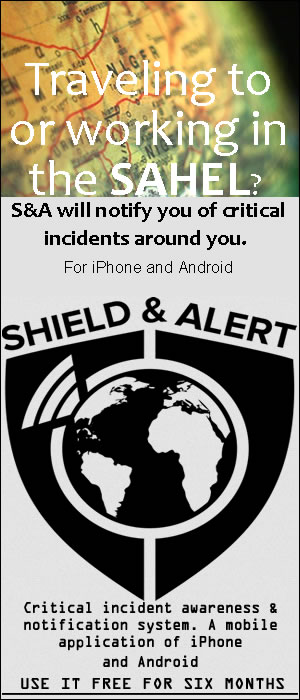By Serge Daniel, Amaury Hauchard in N’Djamena – Missing French journalist Olivier Dubois says he has been kidnapped in Mali by a jihadist group with links to Al-Qaeda, according to a video circulating on social media on Wednesday. Here is what we know about the latest kidnapping of a foreigner in the war-torn West African state.
Why was the journalist in Gao?
Olivier Dubois has worked as a freelance journalist in Mali since 2015, covering the country’s jihadist conflict for French weekly Le Point, as well as the left-of-centre daily Liberation. In the undated hostage video published on Wednesday, the 46-year-old said he was abducted on April 8 in Gao, northern Mali, by the Group to Support Islam and Muslims (GSIM), the biggest jihadist alliance in the Sahel.
According to military officials and diplomats interviewed by AFP, as well as Dubois’ local help — called a “fixer” in journalism — the Frenchman had travelled to Gao to interview GSIM commander Abdallah Ag Albakaye. Named only as Souleymane for security reasons, the fixer has often helped journalists navigate high-risk areas of the country. He comes from Talataye, a region where Abdallah Ag Albakaye is active, about 150 kilometres (93 miles) west of Gao, and helped Dubois arrange the interview.
The kidnapping
Olivier Dubois landed in Gao by plane from the capital Bamako on the morning of April 8. He had an appointment with Abdallah Ag Albakaye in an apartment in the town, and left several items, including his passport, in his hotel room before going to the meeting. Souleymane said he accompanied Dubois to a street, where he saw the journalist get into a car with several men. Dubois has not been seen in public since.
Officials discreetly put out an alert to a small group of people after he failed to show up for his return flight two days later. Initially, there were hopes that the journalist had missed his flight because of a simple change of schedule or itinerary. But those hopes were dashed after the hostage video came to light.
French military officials questioned Souleymane for several days in Gao, where the French army has its main base in the Sahel region, before they handed him to Malian officials. Souleymane has since been taken to Bamako, according to Malian security officers. Police are still questioning him.
The context
Mali has been battling a jihadist insurgency since 2012, when Islamist fighters first emerged during a rebellion by ethnic Tuareg separatists in the north. France intervened to crush the rebellion, but the jihadists scattered and regrouped, taking their campaign into central Mali, an ethnic powderkeg, in 2015 and then into neighbouring Niger and Burkina Faso. Thousands of soldiers and civilians have died, hundreds of thousands have fled their homes and swathes of the Sahel lie outside of government control.
Several armed groups operate in the area around Gao. Some are former rebels who signed a peace agreement with Mali’s government in 2015. But others are affiliated with al-Qaeda, or the Islamic State group, and are waging a brutal war against Malian and foreign troops. The town of Gao is plagued by instability and crime, and much of the countryside remains in jihadist hands. Journalists working in the Sahel, both local and foreign, risk being killed or kidnapped. Liberation, in a statement Wednesday, said that it had refused in advance Dubois’ proposal of the interview.
Several governments — including France’s — advise against all travel to most parts of Mali, Burkina Faso and Niger because of the danger involved. Two Spanish journalists were killed in mid-April while on assignment in eastern Burkina Faso, for example. Two French radio journalists were also killed in northern Mali in 2013. With kidnappings, militants often take their captives to remote desert redoubts, where security forces struggle to mount effective rescue operations.








